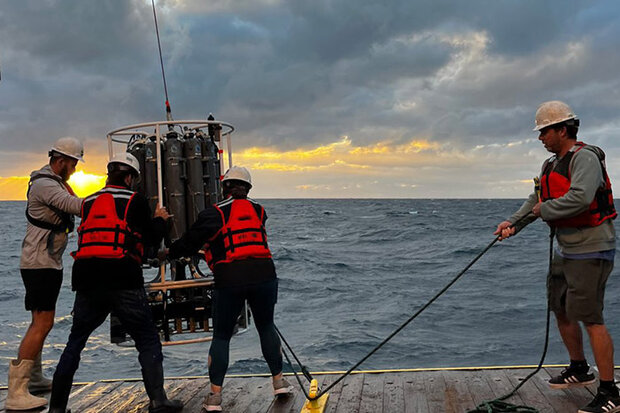Key study demonstrates buffering of some Florida reefs against ocean acidification

Scientists recover a sensor used to collect water samples from aboard the research vessel Walton Smith. Credit: NOAA/Tyler Christian

Scientists recover a sensor used to collect water samples from aboard the research vessel Walton Smith. Credit: NOAA/Tyler Christian
A groundbreaking new study spanning more than a decade and hundreds of miles of the Florida Coral Reef demonstrates the key role benthic communities play in reducing the impacts of climate change on coral reef ecosystems, specifically Ocean Acidification.
As the ocean accumulates more carbon from the atmosphere, it becomes more acidic, a process known as Ocean Acidification. A more acidic ocean makes it harder for corals and other marine organisms to build their calcium carbonate skeletons and shells. However, scientists at NOAA’s Atlantic Oceanographic and Meteorological Laboratory (AOML) and the Cooperative Institute for Marine and Atmospheric Studies (CIMAS) have found that ocean acidification near the Florida Coral Reef varies both geographically and over time, resulting in reef areas that may be less affected by acidification compared to reefs in the open ocean.
In many regions globally, the effects of ocean acidification on coastal ecosystems are compounded by localized changes in water chemistry that are harmful to key marine ecosystems. While the southernmost reefs in the Florida Coral Reef were identified as hotspots for ocean acidification, inshore reefs, particularly in the Upper Keys, proved less vulnerable due to increasing water alkalinity (the opposite of acidity) and the presence of seagrass beds.